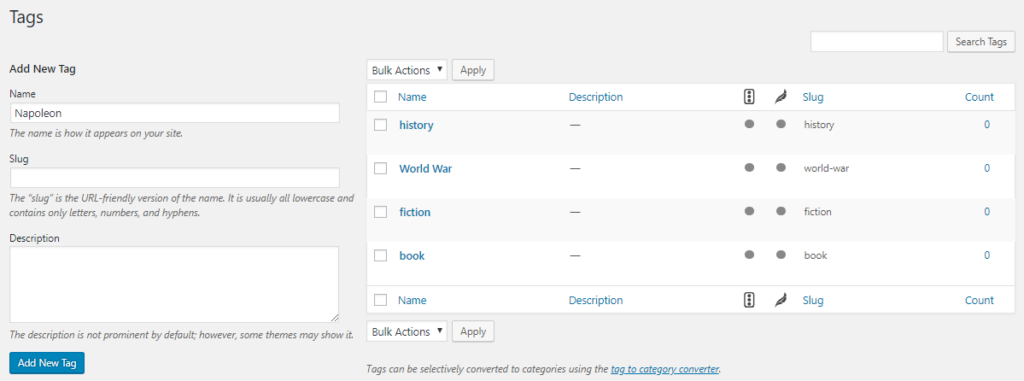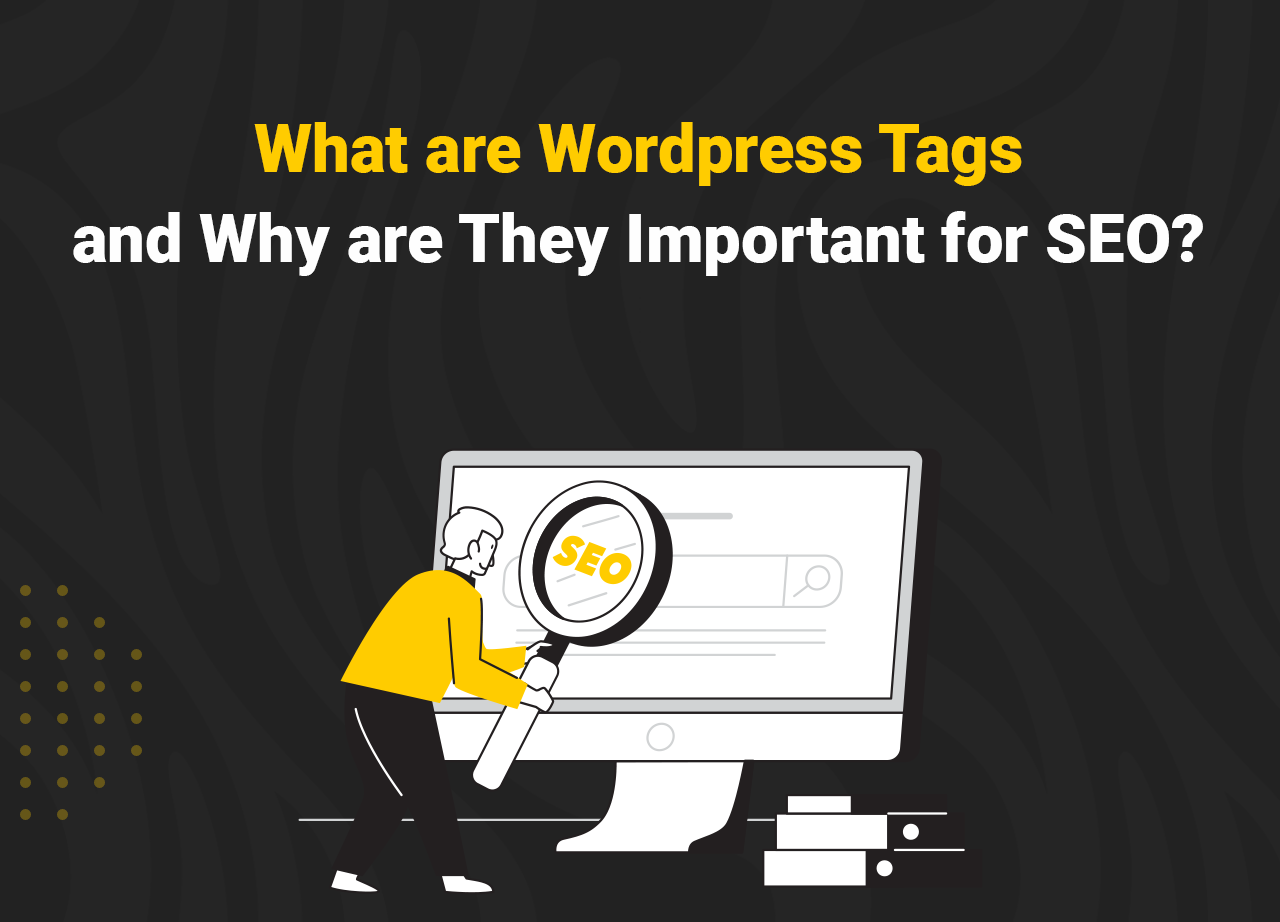What are WordPress Tags and Why are They Important for SEO?

WordPress tags are valuable tools for categorizing your posts based on specific details. Each post can feature multiple tags, allowing visitors to easily click on any tag to discover related content.
Tags not only help organize your content but also play a crucial role in enhancing user experience and SEO.
Let’s dive deeper into how tags can benefit your website.
WORDPRESS TAGS VS. CATEGORIES
In technical terms, both categories and Tags are WordPress taxonomy. They classify your posts.
Tags and categories are used in different ways, and here are some of their significant differences.
#NECESSITY VS. OPTIONAL
Unlike categories, which are mandatory, tags are optional. You are free to add WordPress tags to your posts if you like, but you can publish without any tags if that’s your preference. Moreover, you should also get good web hosting for WordPress for extra security and better visitor experience.
#BROAD VS. SPECIFIC
Another distinction between categories and tags is how much of the topic they cover. Categories groups broad topics of your posts while tags describe specific details in your content.
For example, if your blog is about different kinds of food recipes, your WordPress tags may include “Salad Recipes,” “Soup Recipes,” and “Chicken Recipes.”. These tags are more specific than just saying “Food” or “Recipes”
Categories might be Culinary tips, Food news, recipes, etc.
#STANDALONE UNIT VS. PARENT-CHILD RELATIONSHIP
Categories and tags have different hierarchical relationships, and categories are hierarchical, which means you can have nesting categories.
For example, you can add subcategories like Appetizers, main course, or Diet food plan under the Recipes category. You can add more subcategories like low carb foods, low sugar food, etc., under the category of Diet food plan.
On the other hand, tags don’t have this type of parent-child relationship, and each tag you use is a standalone item.
These two taxonomies are different, but you can use them both in your posts simultaneously. A post can have one or more categories and multiple tags.
HOW TO ADD TAGS IN WORDPRESS?
Adding tags to your WordPress posts is easy, but you have to understand that only posts can have tags. To add tags for new blog posts:
- In your Admin dashboard, go to Posts>Add New.
- On the right of your visual editor, find the tags option.
- Type the tags you want to your post. Remember to separate each tag with a comma.

You can also add tags for existing posts, and this will help you increase your SEO as you can add a slug for your tags.
- In your Admin dashboard, go to posts>Tags.
- Add a new tag on a name form.
- Add the slug for your tag.

WHAT IS THE IMPORTANCE (SEO) OF WORDPRESS TAGS?
WordPress tags, when done right, can create change for your SEO. However, it would be best to keep in mind that WordPress tags do not offer much SEO benefit.
Using them excessively can mess up your website, create a poor user experience, and negatively impact the SEO of your whole website.
There is a misconception that WordPress tags can improve your SEO, though, in reality, they have little impact on your search rankings.
WordPress comes with built-in SEO features that deal with search engines and many web design companies enable these features for there clients to ensure that search engines will index posts, pages, categories, and tags of the website and store information in its database.
The main purpose of WordPress tags is to help organize content on your website.
HERE ARE SOME OF THE STEPS YOU CAN TAKE TO KEEP YOUR WORDPRESS TAGS SEO-FRIENDLY:
1. DIFFERENTIATE CATEGORIES FROM TAGS
Resist from creating terms that are similar between category and tags. How you use these two is up to you, but a common approach should be to use categories for broad categorization, i.e. Fashion. Use tags for more specific topics, i.e., Ladies Summer styles or Kids Wear.
Following this system will keep your taxonomies well organized and helpful.
2. NOINDEX YOUR TAG ARCHIVES
It’s unnecessary to have your tag archives indexed by search engines unless you have a genuine reason.
Install the free Yoast SEO if you haven’t already. This will make it easy to no-index your tag archives.
Go to your WordPress dashboard, go to SEO> Search Appearance> Taxonomies.
Under the “Tags” option, select “NO” for “Show Tags in search results.”
3. USE TAGS ONLY IF YOU NEED THEM.
You must link every WordPress with at least one category, but it’s not a must to use tags at all.
If using tags will help navigate your site, use them. But if these tags are only adding clutter, ditch using them.
CONCLUSION
WordPress tags help you to organize your site’s content and make navigation easy. While categories are broad topics that apply to different posts, tags are more specific to the actual content of that post.
However, faults in using tags will frustrate your SEO. Use the recommended tips to optimize tag usability; that way, you will not affect your SEO.
For more information, talk to our team of professionals at Pearl Lemon Web.





